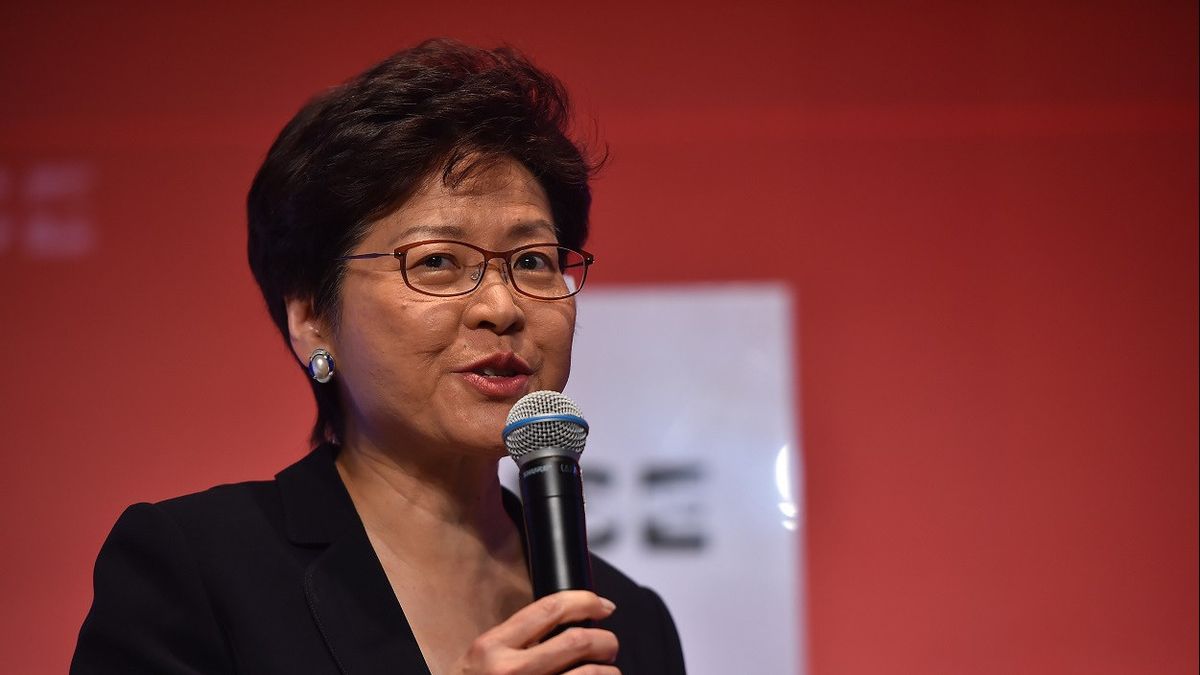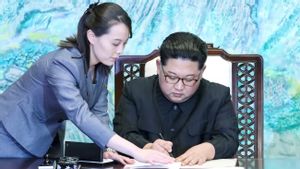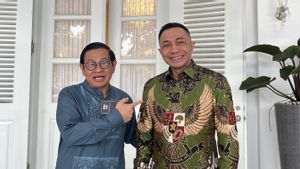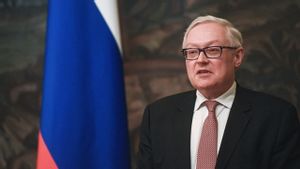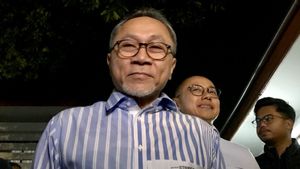JAKARTA - Hong Kong leader, Carrie Lam, announced on Tuesday that she supports the implementation of mainland China laws on the territory related to the response to foreign sanctions. Hong Kong's strong signal is getting closer to Beijing.
Speaking at her weekly press conference, Lam said she would have preferred the law to be introduced through Hong Kong law, rather than Beijing law, by adding it to the annex to Hong Kong's mini-constitution, known as the Basic Law.
"(Hong Kong) will do its best to fulfill its constitutional responsibilities, including safeguarding the country's autonomy, security, and interests for its development", Lam said, citing Reuters Tuesday 10 August.
"We support this national law, the anti-sanctions law - to be included in Annex 3", he continued, referring to the annex to the Basic Law.
Local enforcement would further clarify the legal framework around implementation, he said, adding that Beijing had consulted with him on the list of laws in Annex 3.
Beijing passed a new law last June, under which individuals or entities involved in making or implementing discriminatory acts against Chinese citizens or entities can be placed on the Chinese government's anti-sanctions list.
Under Chinese law, such people can then be denied entry to China or expelled. Their assets in China can be confiscated or frozen. They may also be prohibited from doing business with entities or persons in China.
The law comes as the United States and the European Union step up pressure on China over Hong Kong's trade, technology and democracy, and human rights in the Xinjiang region.
Critics have warned that implementing the law in Hong Kong could damage its reputation as a global financial hub. As is well known, Hong Kong returned to Chinese sovereignty in 1997 with guarantees of a high degree of autonomy and freedom.
On Sunday, Hong Kong Justice Secretary Teresa Cheng said, 'the most natural and appropriate way to introduce anti-sanction laws into Hong Kong is, by adding them to the annex to the Basic Law.
But, it must first be approved by China's highest organ of parliament, the National People's Congress, he said. The media have reported that a decision is likely to be made at a meeting in Beijing on August 17-20.
SEE ALSO:
To note, the United States Government has imposed sanctions on Hong Kong and Chinese officials over Beijing's crackdown on the city's liberties under a national security law that the central government imposed on the financial hub a year ago.
The Anti-sanctions Act was passed by China's top legislature, the Standing Committee of the National People's Congress (NPC) on June 10. The new law is China's newest and most widespread legal tool, to retaliate against foreign sanctions and is meant to give China's retaliatory actions more legitimacy and predictability, according to local experts.
The English, Chinese, Japanese, Arabic, and French versions are automatically generated by the AI. So there may still be inaccuracies in translating, please always see Indonesian as our main language. (system supported by DigitalSiber.id)
